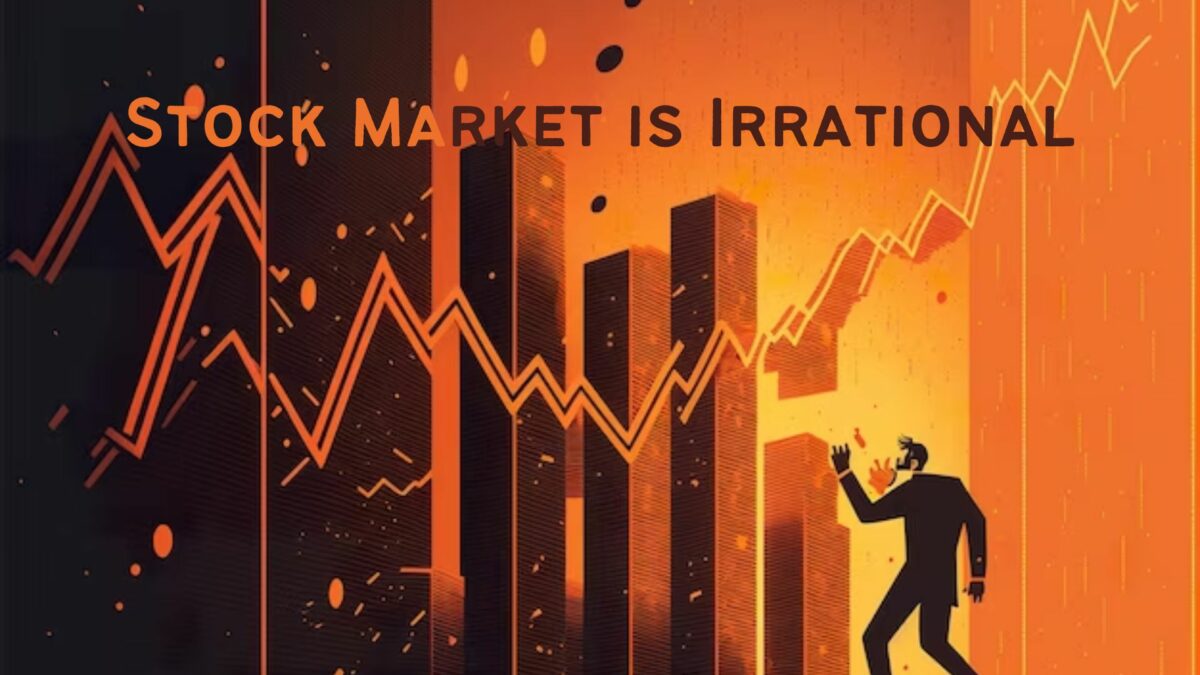“One of the funny things about the stock market is that every time one person buys, another sells, and both think they are astute.”
–William Feather
I am utterly convinced that there is a group of people in financial journalism who make a living by making up reasons that the stock market went up or down on a given day, when, in reality, they have no idea what caused the daily gyrations. Aside from the obvious ones, such as when a company blows away earnings expectations, or, alternatively, when they show a huge loss when everyone expected it to be highly profitable, daily, weekly, or even monthly vicissitudes in the price of stocks are more likely to be a result of randomness than anything.
Finance wonks subscribe to a theory called the Efficient Markets Hypothesis (EMH). EMH has three different forms: weak, semi-strong, and strong.
- Weak: The weak form of the EMH states that you can’t use past prices to predict future stock market performance and that technical analysis doesn’t work. It is possible to use fundamental analysis and insider information to gain an advantage.
- Semi-strong: The semi-strong form of the EMH states that you can’t use any publicly known information to invest. It is possible, though, to use inside information to gain an advantage.
- Strong: The strong form of the EMH states that you can’t use public or private knowledge to gain an advantage over other investors; therefore, it’s impossible to beat the stock market in the long run.
Even if all of the knowledge available in the world immediately came out into the market and people had that information to act on, the EMH only works if people act rationally in their stock market investing decisions.
Ah, and therein lies the rub.
With the history of bubbles from tulips to technology to real estate, we have a history of watching Monkey Brain take our money and try to invest it. We very rarely are completely rational and are subject to all sorts of behaviors that show that we don’t take the information we have and make the best possible investment choices with it. For example, you can see my U.S. News & World Report article “Herd Behavior Hurts Fund Investors” to read how investors chase performance and wind up hurting their portfolios in the process.
Since human behavior is irrational, regardless of informational efficiencies or inefficiencies, it should be possible to take advantage of that irrational behavior to improve investing performance.
I believe, though, that there are three reasons why we can’t expect to consistently beat the markets over time, particularly when investing as opposed to running a small business.
We Can’t Measure What We Did to Beat the Stock Market

There are mutual fund managers and individual investors who beat the stock market on a consistent basis. However, in order to claim that you have a way of beating the market, you need to be able to reproduce that performance regularly and know what it was that you did that caused the outperformance. In other words, you need to be able to apply a template or a process to deliver replicability of your past performance. Furthermore, you would need enough instances of that performance to know that you weren’t just lucky. I’ve seen estimates between 25 and 60 years to determine if you’re skillful rather than luck.
Additionally, it would be nearly impossible to isolate what actually caused the superior performance. Cash flow? P/E? Shiller P/E 10? First initial of the middle name of the CFO? It’s one thing to get good investing performance. It’s another thing to know what it was that you did to actually achieve that performance. If you see prices going up or down in what seems to be an irrational manner, is it truly irrationality, or is it some other reason that you don’t know about?
You Rarely Know a Sector Well Enough to Have an Informational Advantage

I’ve had countless conversations with people who think that they’re going to gain some sort of insider’s edge in the market and invest in individual stock markets because of this “superior” knowledge. When I ask where they get the information from, it’s almost invariably the same sources: CNBC, Yahoo! Finance, the Motley Fool, and the like.
Those could be great sources of information to give you a leg up on investing…if nobody else had access to those sources. Yet, most of the writers of the pieces that these people are using for an edge are journalists, nothing more, nothing less. These journalists have never run a company. They’ve never run a portfolio. They’ve never run a fund. So, the information is suspect, and then everyone has it and can act on it.
If one of these sources says buy Smith Company at the market open, there will be a mad rush to buy Smith Company. Demand will drive up prices. You won’t gain an advantage unless you happen to have a super-fast computer right at Wall Street and can put in the order at the open faster than anyone else out there.
I’ve been there. I’ve followed gurus. I used to watch Cashin’ In (an old college roommate of mine had a crush on Terry Keenan). I loved Jonathan Hoenig. Whatever the Capitalist Pig had to say, I treated it as gospel. Wayne Rogers was only one fraction beneath Hoenig on my guru hero worship ladder. We made some investments in what they said. Sometimes we won, sometimes we lost, but, looking back, the scary thing was that we were investing in the stock market, not based on some sort of fundamental analysis or knowledge of an industry, but, rather because a guru told us on Saturday morning to go out and buy on Monday.
Therefore, when you read a “finance newsletter” that tells you to invest in pork snout futures because pork snout futures are all the latest rage, what will give you the security that, aside from this “guru” telling you about pork snout futures, that you know enough about pork snouts, their demand, their market, and the trends, to determine whether or not to invest in pork snout futures? Unless you’ve lived on giant industrial farms and worked with food distributors your entire career so that you have a deep knowledge of the pork snout sector, you don’t have an informational edge.
The people who are on TV or in the media spouting off their buy and sell recommendations are probably making much more money as a result of their media appearances than they are off of their investments (check out the recent news on Tobin Smith for an example). If you could make boatloads of money off of investing, would you waste your time appearing on television except to stroke your own ego? No! You’d be off making more money so that you could retire earlier and go live in your yacht sipping umbrella drinks!
Even When You Know a Sector, You Can’t Account for Others

In the company I founded, we made a strategic shift in 2010 to focus solely on the most commonly used open-source search engine, Solr. We had been working with Solr since the year it was released, in 2006, but had been a general software development firm until we made our shift in 2010 – if it involved geeks with keyboards, we did it. However, it wasn’t until my partner, who was the co-author of the first (and only) book on Solr at the time, spoke at a conference and was, in his words, “treated like a rock star” that we decided to make the strategic shift to focus fully into Solr.
We knew our market and the advantages that the product we supported offered compared to everyone else. Yet, even with that informational and performance superiority, there was no guarantee that we would succeed. We did, fortunately, but it just as easily could have gone a different way and we could have not succeeded.
One interesting turn of events happened, though, which shows me that even when you know a market inside and out as we did, that knowledge might not translate into profitable investing opportunities.
One of the competitors to our search engine was a product called Autonomy. While there were some search engines that we knew it was difficult to dislodge potential customers away from using, Autonomy was considered a weaker offering. It was clunky, large, and difficult to customize. We knew its weaknesses and saw, among the people in the industry we knew, declining market share as people got tired of working with it.
Yet, in August 2011, Hewlett Packard decided to pony up $11.7 billion for Autonomy, a 64% premium to the closing price on the day of the announcement. Had I, using my deep knowledge of the search engine market, decided to short Autonomy, I’d have been slaughtered due to the irrationality of an M&A team at HP. Later on, my thoughts about how much HP had overpaid for Autonomy were validated, as they had to write off 80% of the acquisition price. All it takes is one greater fool to throw off all of your plans based on rational knowledge.
I fully believe that the stock market is irrational. I also believe that there’s probably someone out there who is killing it in the market because he’s cracked the code and knows how to take advantage of all of the irrationality of retail investors. I’m convinced that he’s not going to sell you that information in a $397 course or webinar, either, and get rid of his investing advantage.
If you’re dying to take risks, I have an alternative suggestion for you.
If you’re beating the stock market, good for you. However, I would ask you to look deep down inside, be truthful, and ask yourself if you truly know why you have beaten the market. Skill or luck?
Well, do you feel lucky? Do ya?
Author Profile
- John Davis is a nationally recognized expert on credit reporting, credit scoring, and identity theft. He has written four books about his expertise in the field and has been featured extensively in numerous media outlets such as The Wall Street Journal, The Washington Post, CNN, CBS News, CNBC, Fox Business, and many more. With over 20 years of experience helping consumers understand their credit and identity protection rights, John is passionate about empowering people to take control of their finances. He works with financial institutions to develop consumer-friendly policies that promote financial literacy and responsible borrowing habits.
Latest entries
 Low Income GrantsSeptember 25, 2023How to Get a Free Government Phone: A Step-by-Step Guide
Low Income GrantsSeptember 25, 2023How to Get a Free Government Phone: A Step-by-Step Guide Low Income GrantsSeptember 25, 2023Dental Charities That Help With Dental Costs
Low Income GrantsSeptember 25, 2023Dental Charities That Help With Dental Costs Low Income GrantsSeptember 25, 2023Low-Cost Hearing Aids for Seniors: A Comprehensive Guide
Low Income GrantsSeptember 25, 2023Low-Cost Hearing Aids for Seniors: A Comprehensive Guide Low Income GrantsSeptember 25, 2023Second Chance Apartments that Accept Evictions: A Comprehensive Guide
Low Income GrantsSeptember 25, 2023Second Chance Apartments that Accept Evictions: A Comprehensive Guide

